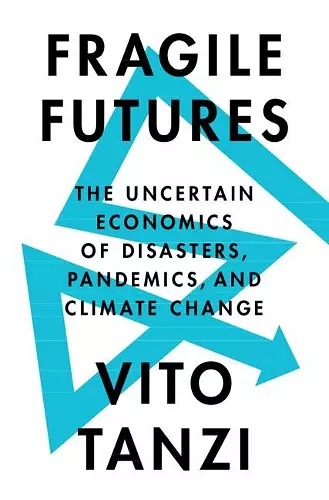Fragile Futures
The Uncertain Economics of Disasters, Pandemics, and Climate Change
Format:Hardback
Publisher:Cambridge University Press
Published:19th May '22
Should be back in stock very soon

Governments have not adequately prepared for unpredictable events such as climate change and pandemics, which require global responses.
Economic theory and government actions have not adequately anticipated statistically unpredictable events such as disasters and pandemics. These events require a global response, which the existing world institutional architecture has not prepared for. Future “progress” for mankind is questionable in the absence of major institutional changes.This book revisits a distinction introduced in 1921 by economists Frank Knight and John Maynard Keynes: that between statistically predictable future events ('risks') and statistically unpredictable, uncertain events ('uncertainties'). Governments have generally ignored the latter, perceiving phenomena such as pandemics, natural disasters and climate change as uncontrollable Acts of God. As a result, there has been little if any preparation for future catastrophes. Our modern society is more interconnected and more globalized than ever. Dealing with uncertain future events requires a stronger and more globally coordinated government response. This book suggests a larger, more global government role in dealing with these disasters and keeping economic inequalities low. Major institutional changes, such as regulating the private sector for the common good and dealing with special harms, risks and crises, especially those concerning climate change and pandemics, are necessary in order to achieve any semblance of future progress for humankind.
'This is the most thorough and intelligent review of the western world's economic development, corresponding intellectual debates, and lines of thoughts in economics and public policy from the end of World War I to the present that I have seen.' Hans-Werner Sinn, University of Munich
'A fascinating discussion of why governments may sometimes aggravate the problems they set to solve. Read it if you want to reflect upon the role of the public sector in modern economics.' Alberto Alesina, Harvard University
'In the light of the Covid-19 pandemic, this ambitious book examines the challenges our modern society and our economies have faced historically as a result of natural disasters such as plagues and pandemics. It then considers how, given the future challenges humanity faces with climate change, tax and fiscal policy should be deployed. Policymaking under extreme uncertainty is of great current interest in the 21st Century. This book from an experienced economist provides some fascinating insights.' Sir Anton Muscatelli, University of Glasgow
'This book provides an excellent and original analysis about the role of government during unexpected events and exceptional situations, including pandemics and major disasters, such as climate changes. In times of the COVID-19 pandemic, it offers a timely and stimulating discussion about how and why uncertain and future events should be included into policy decisions. The author, an outstanding expert of public finance, competently guides the readers through the understanding of our complex real world.' Paola Profeta, Bocconi University
'Vito Tanzi has written an important book on a set of main challenges of our time: how to anticipate and manage pandemics, earthquakes, famines, nuclear accidents, climate change and ecological destabilization. The book identifies the difficulties posed by intractable uncertainty, missing markets, short-termism of governments, denial and neglect for finding adequate responses to shocks and processes that can have a high toll both on human lives and the planet. Tanzi's writing is balanced, wise, elegant and well informed by theory and a wealth of historical episodes relevant for the world of today and tomorrow. Strongly recommended!' Andrés Solimano, University of Oxford
'In different ways, the pandemic and climate change force us to recognise the inescapable reality of uncertainty. Vito Tanzi, former head of the fiscal affairs department of the International Monetary Fund, brings out some crucial implications. One is that we can and should use fiscal policy much better in response to shocks: in the case of Covid-19, for example, we should have imposed a temporary tax on the rich. More fundamentally, our interconnected world needs both more and better global governance.' Martin Wolf, Financial Times
'… an enjoyable read …' Christopher L. Atkinson, Public Organization Review
'The book adds considerable value and provides striking insights …' R. M. Whaples, Choice
ISBN: 9781009100120
Dimensions: 236mm x 160mm x 24mm
Weight: 550g
246 pages